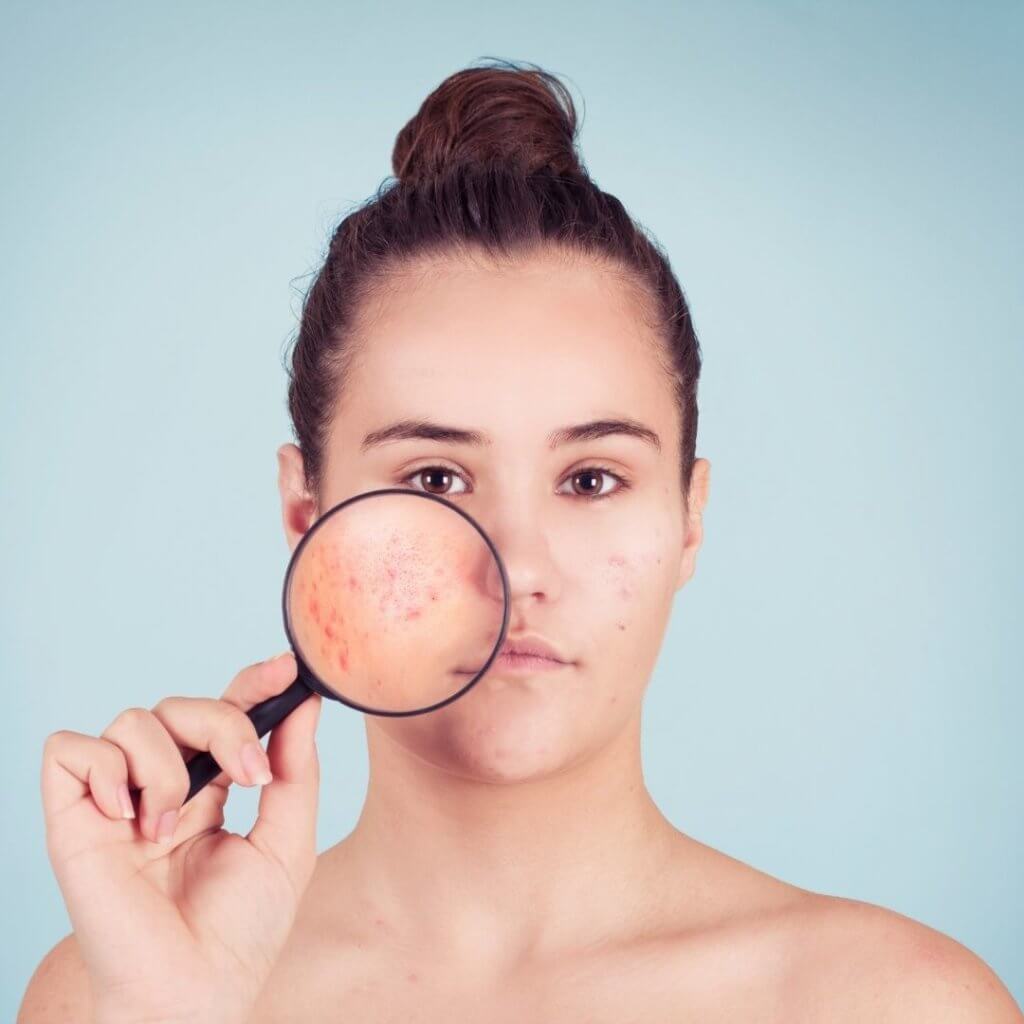
Acne be Gone!
Acne Sucks!
Your worst breakouts are before big events! All the lotions are expensive and you can’t even enjoy your mountain summit selfie without critiquing your skin.
This time is different (you think). You purchase $200 worth of lotions and potions, cut out all sugar and tell yourself to ‘seriously stop picking!’ Fast forward 1 month later – the products aren’t doing all that much, you’ve stress ate half a box of Oreos and are constantly picking at your face.
These half-baked solutions are expensive and time-consuming. Commit to a treatment plan that is tailored to you with a healthcare professional who will get to the root cause of your acne.
Factors that influence the formation of acne:
A multitude of factors influence the formation of acne and there is no ONE way to have clear skin. Understanding the reasons for YOUR acne and creating an individualized treatment plan is the best option for long-term success. In this post, I will discuss what factors are contributing to acne, what an individualized treatment plan looks like, and how to start prepping to make the most out of your visit with a health care professional.
What is Acne?
Acne is a skin condition where the pores of your skin become blocked and the degree of acne is influenced by hormones, stress, your immune response, inflammation and digestion. Assessment includes identifying the timeline, patterns and presentation of your acne. Blood tests to identify pathology or pattern in your hormones or stool testing to see how your digestion is working may identify a more systemic cause. Based on symptoms and appropriate tests, your practitioner will help you to create a treatment plan which will encompass diet and lifestyle changes, stress management support, evidence-based topical skin care and addressing any underlying pathology.
The more data you can communicate about the specifics of your acne the better the chances for success. Start by collecting data on your body to better understand and be able to communicate your symptoms with your health care provider.
Here’s how you start:
- Take photos – take photos of your skin in a flare and when its clearest. This can help your practitioner better understand the severity and type of acne you have.
- Track your cycle – if you are a menstruating person, get familiar with your menstrual cycle. No one remembers their period from 3 months ago. Use an app and track when you get your period, its duration, and any associated PMS symptoms – this can help determine any cyclical patterns.
- Listen to your gut – start to notice (and document) how well you are digesting – Do you have a bowel movement every day? Is it painful? Does it stain the bowl? As the skin is the largest organ of elimination and our bowel movements are an indicator of how well we are eliminating.
Once you have some data, work with a practitioner to create a specific game plan on how to tackle your acne. For instance, a naturopathic doctor will investigate your health history, help you navigate which factors are the most influential for your acne, and direct best testing options.
BOTTOM LINE:
There are many factors that contribute to acne and there is no quick fix. The road to clear skin can take time and the best place to start is to collect data on how YOUR acne presents.
When you are ready, work with a healthcare practitioner to help interpret that data and make a specific game plan. T
o read more about who I am and how I can help click HERE
Read more about Acne:
https://my.clevelandclinic.org/health/diseases/12233-acne

Leave a Reply